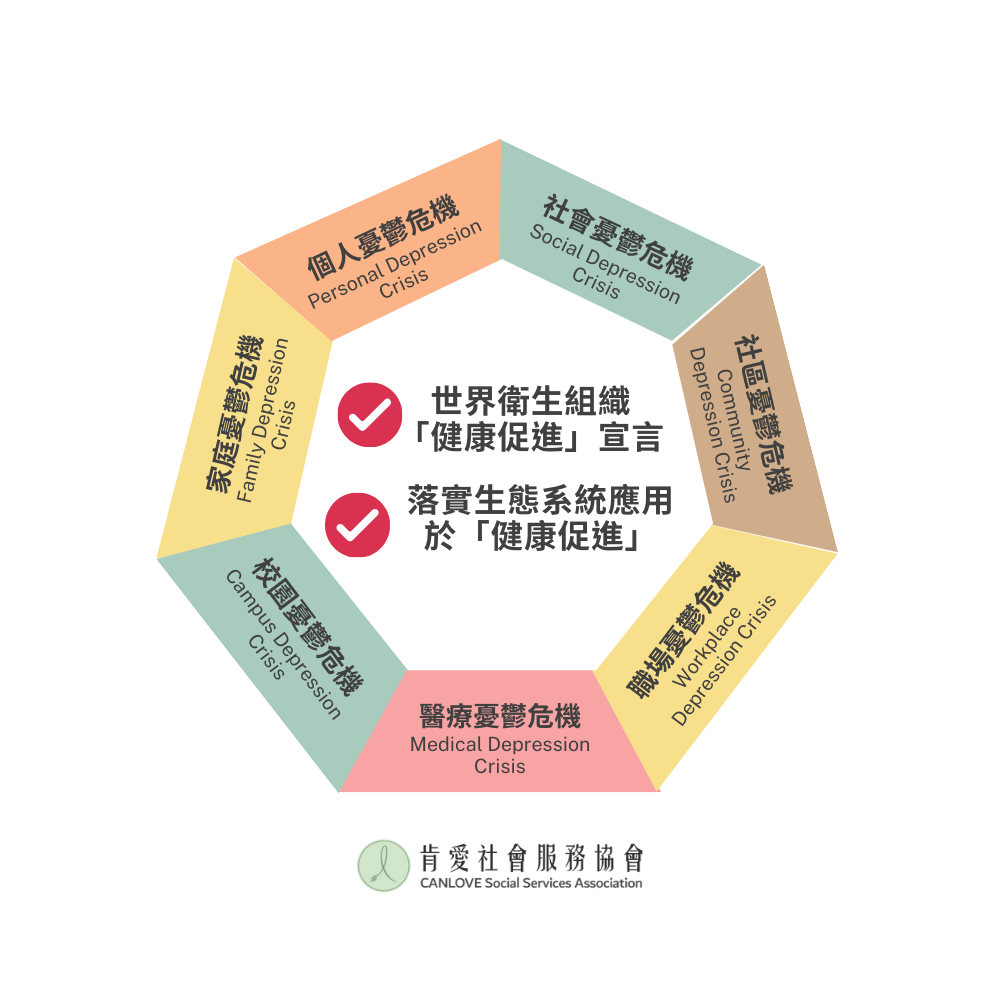Origins of CanLove
**As the COVID-19 pandemic has evolved, so have people’s emotional states, fluctuating with the changing circumstances. The pandemic has created global challenges for health and safety, teaching us to connect through shared hardships.
The World Health Organization (WHO) officially reported that, since 2020, depression has become the second most severe global disease. The outbreak has increased levels of depression and anxiety, with WHO predicting that by 2030, depression will be the most severe global disease.
As we transition from an industrial society to a digital and eventually an AI-driven society, we find that feelings of loneliness and isolation are intensifying. These feelings, which impact emotional and physical health, increase the risk of depression throughout various stages of its development. We recognize that depression is not just an individual issue.
In 1986, the WHO’s “Health Promotion” declaration defined health not merely as the absence of disease or discomfort but as complete physical and mental well-being. It also emphasized that health promotion requires diverse societal participation, including governments, communities, NGOs, industries, and individuals.
As depression became the second leading cause of disability globally in 2020 and is projected to become the first by 2030, it is clear that each small step we take can contribute to a significant global advancement. Together, we can overcome depression and restore health. CanLove—needs your support.**
CanLove's Mission
**CanLove’s Objectives**
– **Increase Awareness and Reduce Stigma:** Raise awareness about depression, promote related services, and address the shame and social stigma associated with mental health issues. Encourage individuals to find their motivation and willingness to face depression, and foster a collective desire for healing and love.
– **Leverage Personal Experience:** Use firsthand experiences to understand the significance of depression in mental and physical health. Apply diverse therapeutic approaches and build a comprehensive social safety net for depression, encompassing personal, family, community, workplace, school, medical, and societal dimensions. From self-help to mutual support, aim to navigate and overcome life’s challenges and storms, ultimately achieving a renewed sense of self and fulfillment.

